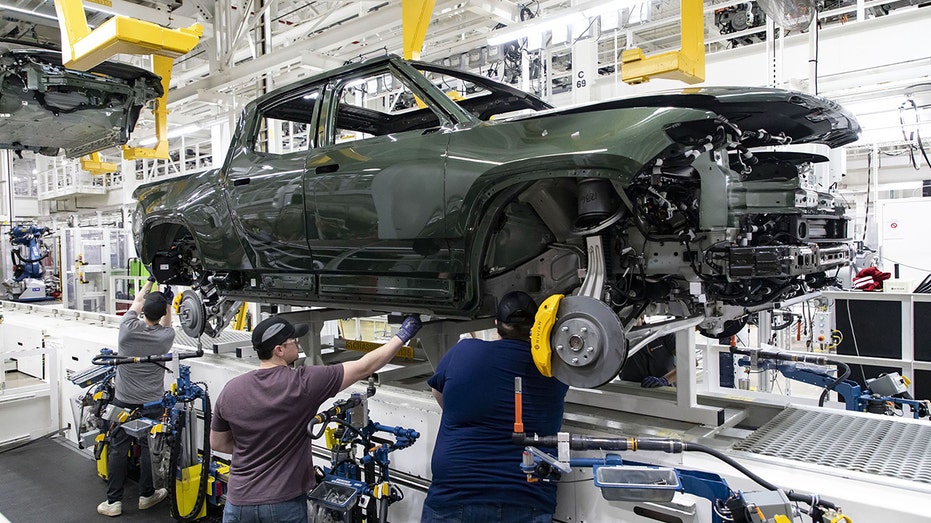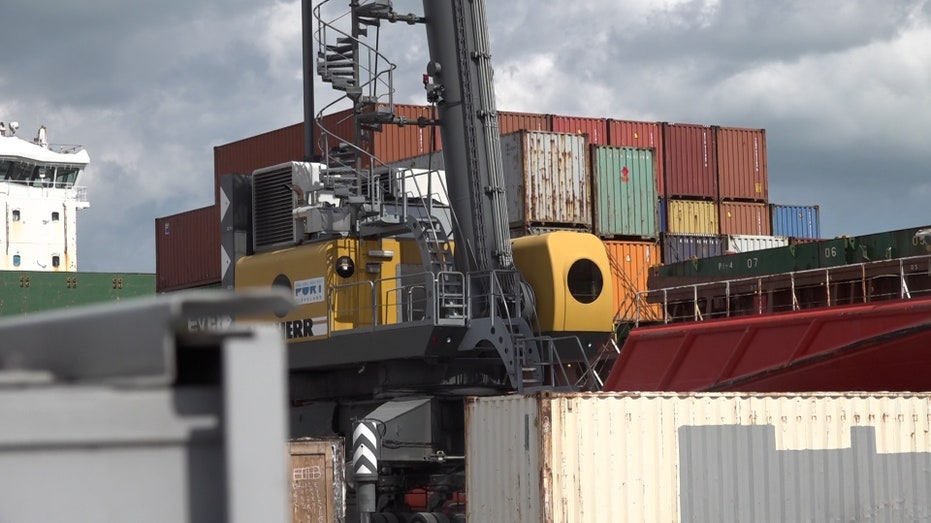Factory orders slowed markedly in April, climbing just 0.3%
Factory orders decelerated from March as supply chains remained snarled
Raising interest rates to combat inflation are ‘repercussions’ of supply chain problems: Expert
Exiger CEO Brandon Daniels provides insight into how the Fed raising interest rates are impacting the U.S. economy.
U.S. factory orders decelerated in April, climbing less than expected amid persistent disruptions in the global supply chain – even as consumer demand for goods remained strong.
The Commerce Department said on Thursday that factory orders rose 0.3% in April, sharply missing the gain of 0.7% forecast by Refinitiv economists. That's also a big decline from March, when factory orders rose by 1.8%.
INFLATION SOARS 8.3% IN APRIL, HOVERING NEAR 40-YEAR HIGH
Americans continued to order machinery motor vehicles and primary metals in April, but orders for electrical equipment, appliances and components fell 0.2%. Orders for computers and electronic products inched up 0.1%.

Workers lower an R1T truck body onto a chassis in the assembly line, April 11, 2022, at the Rivian electric vehicle plant in Normal, Illinois. (Brian Cassella/Chicago Tribune/Tribune News Service via Getty Images / Getty Images)
Shipments of manufactured goods, meanwhile, rose just 0.2% after climbing 2.2% in March. Inventories at factories rose 0.6%.
The report also showed that orders for non-defense capital goods – known as core orders, which are viewed as a more accurate measure of consumer spending – jumped 0.4% in April.
Strong consumer demand for machines, electronics, cars and other durable goods has fueled activity at factories over the past year. But tangled supply chains and a persistent labor shortage have weighed on manufacturing – while also contributing to the highest inflation in nearly four decades.
The data comes amid broader fears of an economic slowdown: Inflation is near a 40-year high, COVID-19 is still forcing lockdowns in China and the Russian war in Ukraine is further exacerbating supply chain disruptions. A growing number of Wall Street firms, including Bank of America, Deutsche Bank and Fannie Mae, are now forecasting a recession in the next two years.

Smaller U.S. ports offer potential solution for supply chain delays. (Stephen Goin / Fox News)
Economic growth in the U.S. is already slowing. The Bureau of Labor Statistics reported earlier this month that gross domestic product unexpectedly shrank in the first quarter of the year, marking the worst performance since the spring of 2020, when the economy was still deep in the throes of the COVID-induced recession.
Fed Chairman Jerome Powell has acknowledged there could be some "pain associated" with reducing inflation and curbing demand but pushed back against the notion of an impending recession, identifying the labor market and strong consumer spending as bright spots in the economy. Still, he has warned that a soft landing is not assured.
CLICK HERE TO READ MORE ON FOX BUSINESS
"It's going to be a challenging task, and it's been made more challenging in the last couple of months because of global events," Powell said recently during a Wall Street Journal live event, referring to the Ukraine war and COVID lockdowns in China.
But he added that "there are a number of plausible paths to having a soft or soft-ish landing. Our job isn't to handicap the odds, it's to try to achieve that."





















